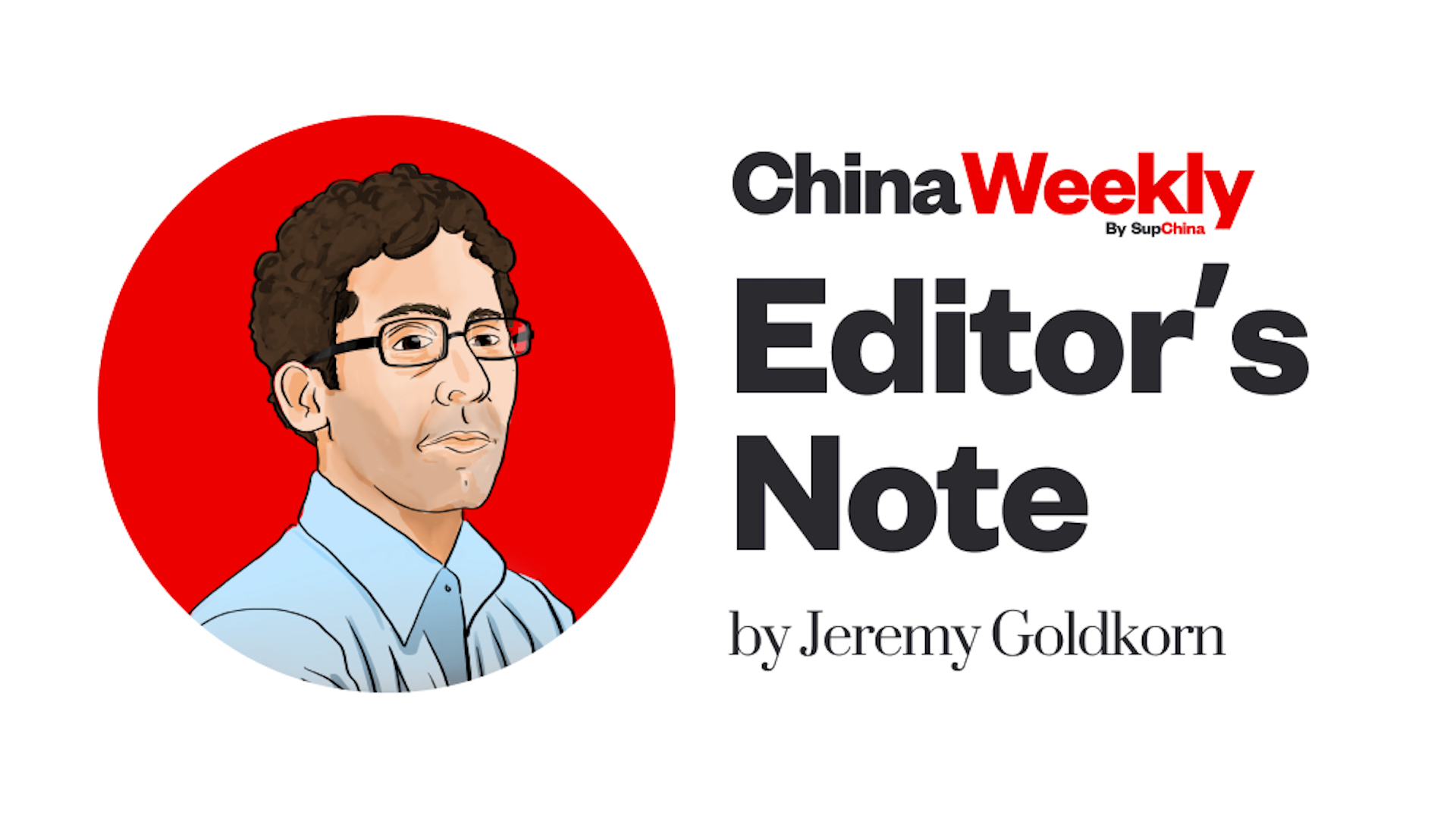Xi went to Xinjiang — Editor’s Note for Friday, July 15, 2022
A note for Weekly newsletter readers from Jeremy Goldkorn.

Dear reader,
Three things before we get into the week that was:
Mr Big
The big news out of Beijing today is that Xí Jìnpíng 习近平 went to Xinjiang, the first time he had made a public appearance since the weekend of July 1, when he popped up in Hong Kong to commemorate the 25th anniversary of the handover.
Xi’s itinerary was full of symbolism and strong messaging: He watched performances of ethnic minority music (video on Twitter), and made speeches that stressed “implementing the Party’s policies on Xinjiang,” and especially focusing on stability and security.
It was Xi’s first trip to what China calls the Xinjiang Uyghur Autonomous region since 2014, when he called for “decisive actions” against “terrorist attacks” after a blast at an Ürümqi railway station that killed three people at the tail-end of his official visit to the province.
Xi’s latest trip was a strong reminder to anyone paying attention that Xi is very much in charge. And he’s willing to flaunt it in the place where Communist Party rule is at its most ruthless right now. This is also the place where the Party sings of economic development and has TV shows about singing and dancing minorities, while many highly informed people in the West see concentration camps and neo-colonialism.
So there is not much point in reading too much into the protests in Henan that are the subject of this week’s Invite to Tea Q&A, with Liqian Ren (which is summarized below or on our website here). Xi can deal with small-scale instability: comfortable protestors in their mere hundreds. But bank failures have an outsize psychological significance for many people, including those who have done very well in the last decade, and would be very angry to lose it all.
Like Göring’s grandson?
Last week at this time, as we were preparing this weekly email, former Japanese Prime Minister Shinzo Abe died after being shot while he was giving a speech. There were some less than charitable reactions to his death in China. In Taiwan, however, some remembered him as a friend.
But it’s worth remembering that there are reasons why Abe is remembered with bitterness not just in China, but also in Korea. In Foreign Policy, Washington-based attorney S. Nathan Park writes:
Suppose the Nazi leader Hermann Göring had a grandson who was “emotionally attached to ‘conservatism’” because people around him “used to point to [his] grandfather as a … ‘war criminal’” and he “felt strong repulsion.”
The China Project TV
We have a bunch of new video content this summer::
Business, on YouTube: Check out our show ChinaEDGE Live with Lizzi Lee, a former MIT economist turned journalist who is interviewing movers, shakers, and opinion makers about China’s business and economy, twice a week.
History, politics, society, and culture on TikTok: Check out our ChinaVibe channel with Susan St.Denis. She’s attended high-school for a time in Qingdao and now she holds an MA in Asian Studies in Chinese politics and law. She explains complex topics clearly and simply in TikTok’s fast evolving visual and verbal language.
Our phrase of the week is slang about China’s high-end ice cream wars.






